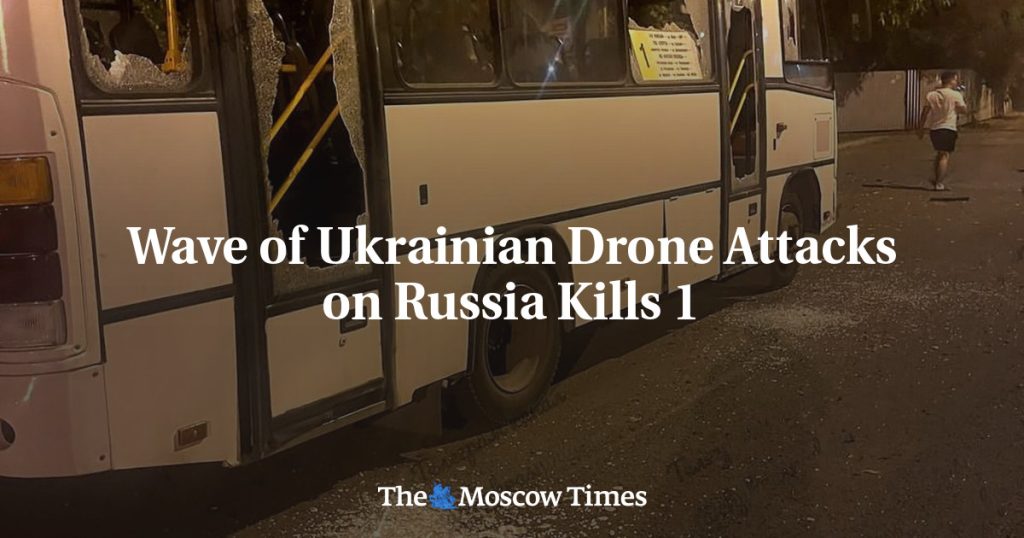Russia’s Defense Ministry announced that its air defense forces successfully intercepted and destroyed 114 drones launched by Ukraine overnight. The attacks targeted various regions, with 70 drones taken down over Crimea and the Black Sea, 43 over the Krasnodar region, and one over Volgograd. The mass wave of drone attacks resulted in at least one casualty, with a worker at a heating station in the southern Krasnodar region killed by a drone strike near the Yuzhny train station. Additionally, several administrative buildings at an oil refinery in the Severski district were damaged.
The ongoing conflict between Russia and Ukraine has seen an escalation in attacks on energy infrastructure. Ukraine has been targeting Russia’s energy facilities, such as oil depots and refineries, in an effort to disrupt the Kremlin’s financial resources and limit the availability of fuel for Moscow’s military operations. In response, Russia has carried out missile and drone strikes on Ukraine’s energy infrastructure, causing significant damage to the country’s electricity generation capacity. As a result, Kyiv has been forced to implement rolling blackouts and rely on imports of electricity from the European Union to meet its energy needs.
The conflict in Ukraine has had far-reaching impacts on both countries’ economies and security. The continued attacks on energy infrastructure have disrupted the supply of essential resources, leading to shortages and economic instability. The reliance on imports for energy has made Ukraine vulnerable to fluctuations in international markets, while Russia’s military actions have strained its relations with Western countries. The escalating violence has also raised concerns about the humanitarian situation in the region, with civilians bearing the brunt of the conflict’s consequences.
The use of drones in warfare has become increasingly prevalent in recent years, with both military and non-state actors employing them for reconnaissance and attacks. Drones offer a cost-effective and efficient means of gathering intelligence and carrying out precision strikes, making them valuable assets on the battlefield. However, their use also raises ethical and legal concerns, particularly regarding civilian casualties and damage to infrastructure. The downing of 114 drones in a single night highlights the importance of robust air defense systems in countering this evolving threat.
The conflict between Russia and Ukraine has demonstrated the growing complexity and intensity of modern warfare, with both sides employing a range of advanced technologies and tactics. The use of drones, missiles, and other weapons systems has transformed the nature of conflict, presenting new challenges for military commanders and policymakers. The ability to adapt and innovate in response to evolving threats will be crucial for both Russia and Ukraine as they navigate this protracted conflict. Effective communication and de-escalation efforts will also be essential in preventing further loss of life and damage to critical infrastructure.
As the situation in Ukraine continues to unfold, international actors are closely monitoring the developments and working towards a peaceful resolution to the conflict. Diplomatic efforts, economic sanctions, and multilateral agreements are among the tools being used to address the root causes of the conflict and promote stability in the region. The protection of civilians, respect for international law, and adherence to agreed-upon ceasefires are essential principles that should guide efforts to achieve a lasting peace. Ultimately, the path towards reconciliation and recovery will require sustained commitment from all parties involved, as well as the support of the international community.















